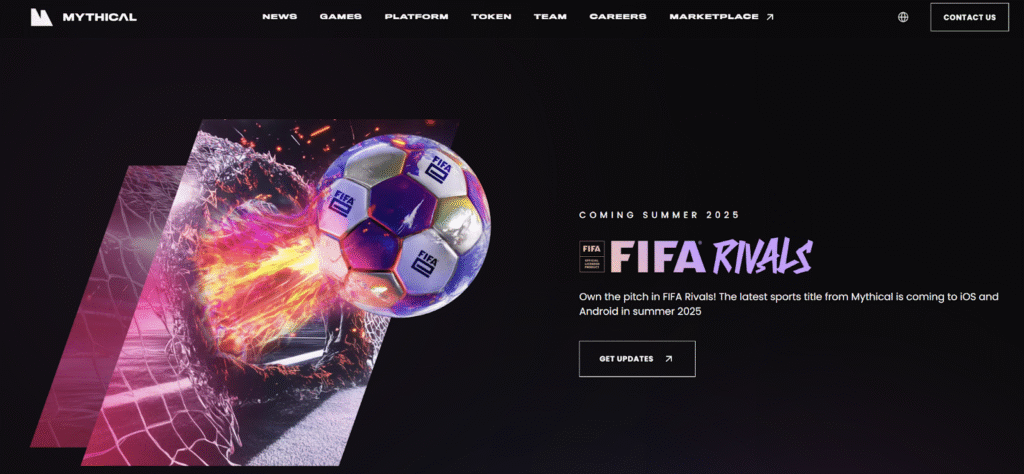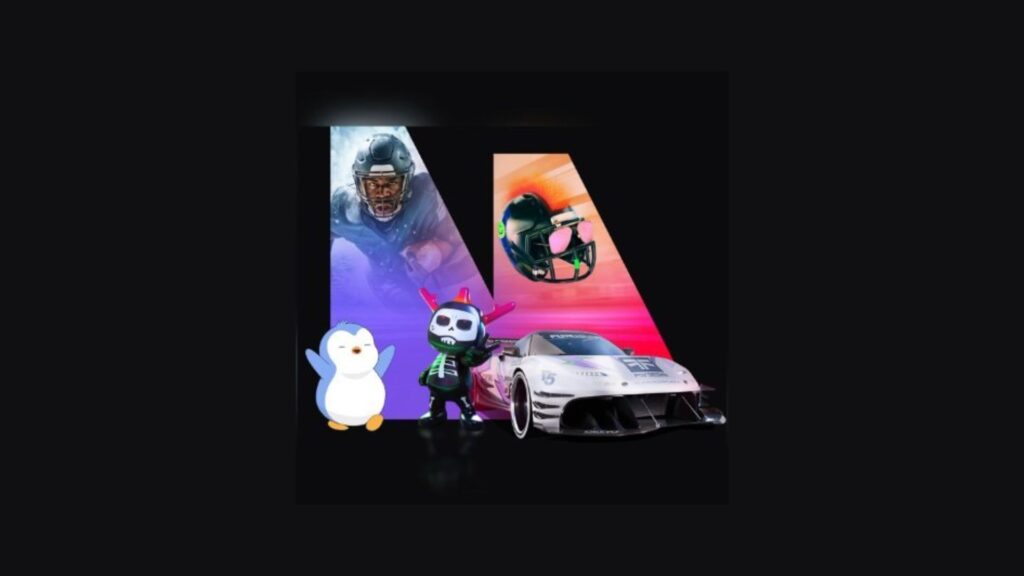Mythical Games and its decentralised ecosystem Mythos are setting a new standard for Web3 gaming. As the market shifts away from speculation, their focus on functional products and sustainable economics stands out.
With games like NFL Rivals driving real revenue and adoption, and the Mythos infrastructure built on Polkadot, this project offers more than just hype.
This article explores how Mythical Games and the Mythos ecosystem are creating a viable path for long-term success in blockchain gaming.
What is Mythical Games?
Mythical Games is a Web3 gaming studio focused on delivering high-quality games powered by decentralised infrastructure.

Rather than marketing blockchain as the main attraction, the team prioritises familiar gameplay enhanced with optional blockchain features.
Over the past four years, Mythical has combined traditional publishing experience with on-chain functionality to build an ecosystem that caters to both mainstream and crypto audiences.
Its first major success, NFL Rivals, proved that Web3 games can generate real revenue and attract millions of players without relying on hype.
The long-term goal is to create a player-first economy where ownership, trading, and gameplay are integrated through infrastructure that works in the background.
What is Mythos?
Mythos is the decentralised layer of the Mythical Games ecosystem. It is powered by the Mythical Chain, a Polkadot parachain that ensures high throughput, low fees, and secure cross-chain interoperability.
Designed for scalability, Mythos connects multiple games, marketplaces, and wallets in a single ecosystem.
More than just a blockchain, Mythos is a framework for ownership and governance. It empowers developers, publishers, and players to share in the value they create.
The infrastructure is built to accommodate crypto newcomers through custodial wallets while also supporting experienced users with non-custodial options.
As of October 2024, nearly six million accounts have been created on the Mythical Chain, driven by successful game launches and growing marketplace activity.
Its approach, blockchain that supports rather than dominates, has proven effective in expanding its user base and attracting meaningful engagement.
The Mythical Ecosystem
The Mythical ecosystem combines technology, content, and player incentives into a single, functioning platform.
Key components include:
- Mythical Chain: A Polkadot-based blockchain designed to power all Mythos applications and games.
- Mythical Marketplace: A decentralised hub for trading in-game assets. It sees around 25,000 daily transactions and over $600,000 in volume.
- Game Titles: Flagship games like NFL Rivals, as well as Nitro Nation and Blankos Block Party, with new titles like Pudgy Party and FIFA Rivals in development.
- Wallet Integration: Players can choose between simple custodial wallets or advanced non-custodial options depending on their preferences.
The studio has tested multiple publishing strategies across PC and mobile platforms. While Blankos Block Party became the first Web3 game on the Epic Games Store, it struggled to scale profitably.
Nitro Nation reached over 1 million downloads but brought in less than $200,000 in revenue, though further updates may help reverse the trend.
These early projects helped Mythical develop an operational model suited for the unique demands of Web3 publishing. It now ranks among the most experienced ecosystems capable of shipping games with fully integrated on-chain mechanics.
The Success Story: NFL Rivals
NFL Rivals is the best-performing title in the Mythical Games portfolio. It is a stylised American football game that launched in April 2023.

Players build teams using nine trading cards, which vary in power and rarity. Cards can be upgraded or acquired through events, marketplace purchases, or loot-style packs.
To date, the game has achieved:
- Over 5.3 million downloads
- More than $10.5 million in revenue
- Around $300 million worth of in-game asset trading
The game allows players to progress naturally into Web3 features without forcing them. For example, standard cards can be turned into NFTs, and players can buy or sell assets via the marketplace. The Web3 loop is entirely optional, which reduces friction and helps retain a broader audience.
Revenue per download is steadily rising. NFL Rivals has now reached approximately 20% of the annual revenue of Madden NFL Mobile.
While Madden’s performance has remained flat since 2022, Rivals continues to grow. Much of this is due to the success of NFT trading, which has increased from 20% of revenue at launch to 65% today.
New features like the in-app marketplace and Quick Trades have made it easier for users to engage in trading.
However, challenges persist. Mythical must continue balancing the onboarding of new players with the expectations of NFT holders. A careful content strategy is needed to avoid upsetting either group.
The MYTH Token
The $MYTH token is the utility and governance asset for the entire Mythos ecosystem. It plays multiple roles, such as:
- Paying for transaction fees on the Mythical Chain
- Unlocking premium features in games and the marketplace
- Allowing governance participation through the Mythos DAO
- Serving as a reward mechanism through staking and ecosystem incentives
The total supply of MYTH is fixed at 1 billion tokens. As of now, 796 million are in circulation, giving it a market capitalisation of $110 million and a fully diluted valuation of $138 million.
MYTH reached its all-time high of $1.99 in November 2022 but is now trading at $0.138, a drop of around 93%.
Its token distribution is structured to support long-term alignment:
- 35% allocated to the Mythos Foundation (unlocked)
- 34% for launch partners with three-year vesting
- 16% for employees and advisors with three-year vesting
- 15% for a game fund, also with three-year vesting
Tokens under vesting are released over a 36-month schedule with a one-year cliff, preventing rapid dilution.
Unlike many projects that rely on inflationary models, Mythical’s approach focuses on sustainability. Fees collected from trading (ranging from 2% to 5%) are used to either reward stakers or burn tokens, reducing the supply over time.
In its first year, 50 million MYTH were distributed as staking rewards with APYs between 15% and 20%. However, staking requires participation in governance, ensuring that active contributors guide the ecosystem’s direction.
This design reinforces alignment between token holders, developers, and players, creating a balanced system of incentives.
Conclusion
Mythical Games and the Mythos ecosystem have moved beyond speculation to deliver tangible results.
With real revenue, a growing player base, and strong infrastructure, they offer a glimpse of what sustainable Web3 gaming can look like. $MYTH plays a central role in governance, staking, and game transactions.
If the market narrative continues to shift toward fundamentals, Mythical is one of the few ecosystems ready to benefit. As 2025 unfolds, its new releases will be key to watch in the broader transition to viable blockchain gaming.

